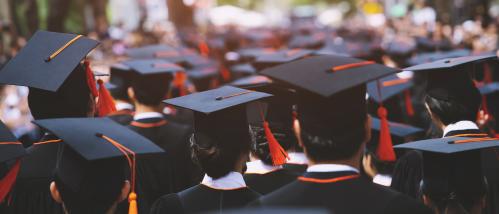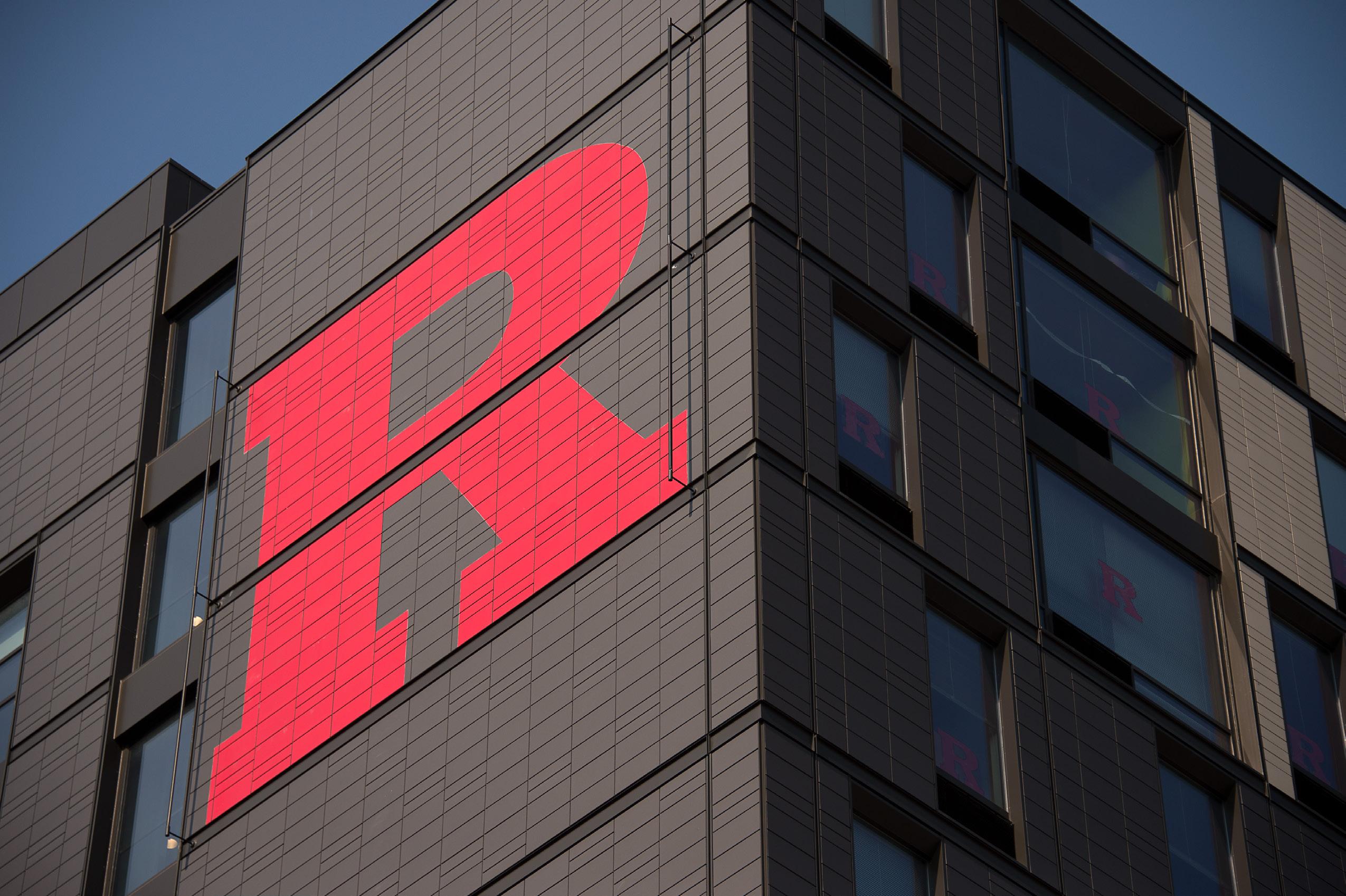STUDENT SUCCESS INSIDER
OCTOBER 2023
IN THIS ISSUE
WELCOME FROM OUR VICE CHANCELLOR
STUDENT SUCCESS: A PROPOSED FRAMEWORK

DATA DEEP DIVE: WHAT THE NUMBERS TELL US
DIVISION HIGHLIGHTS

OCTOBER 2023
WELCOME FROM OUR VICE CHANCELLOR
STUDENT SUCCESS: A PROPOSED FRAMEWORK

DATA DEEP DIVE: WHAT THE NUMBERS TELL US
DIVISION HIGHLIGHTS
3 11
DEAR MEMBERS OF THE RUTGERS-CAMDEN COMMUNITY
Welcome from Vice Chancellor, Dr. Marsha Lowery
STUDENT SUCCESS INITIATIVES
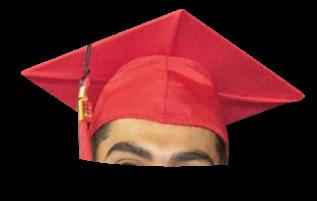
Celebrating the work of our colleagues
DEFINING STUDENT SUCCESS

A proposed framework
DATA DEEP DIVE

Results from the CSI, an evaluation of academic support efforts, and impacts of progress reports

4 12 6 16 9

RAPTOR RECOGNITION
Interviews with our student success champions
STAY TUNED
Upcoming events and initiatives
DIVISION HIGHLIGHTS
How SAS is doing its part to support our students

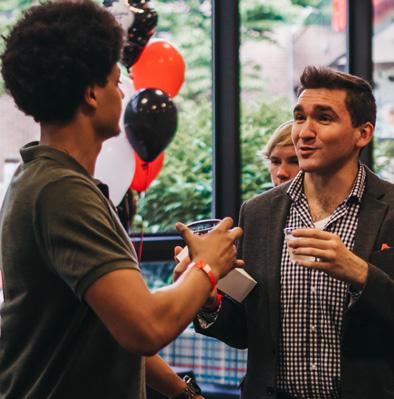
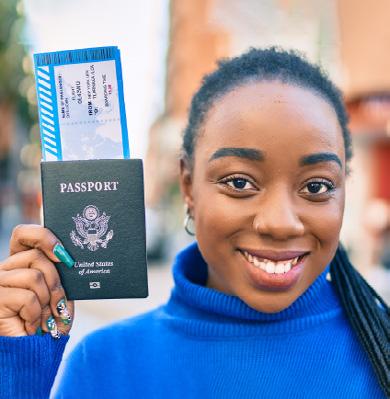
The Student Success Insider e-magazine is produced by the Division of Student Academic Success
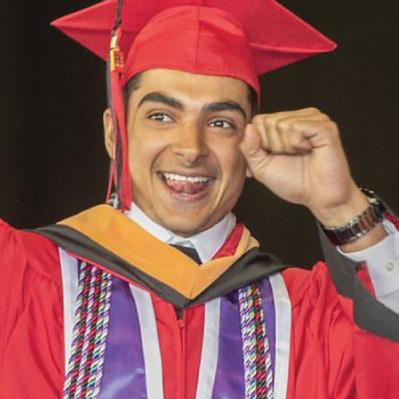
EDITOR-IN-CHIEF Dr. Kendall Barton

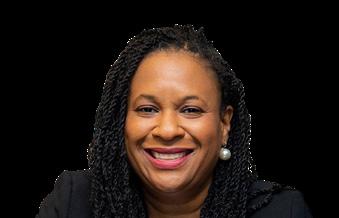
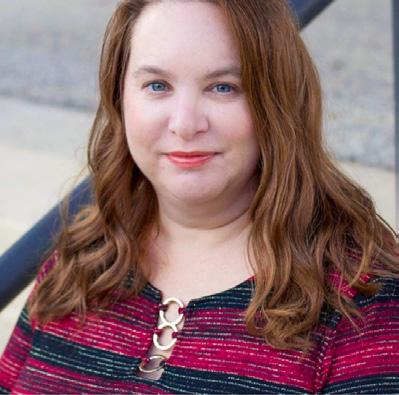
ART DIRECTOR Jamie Victor
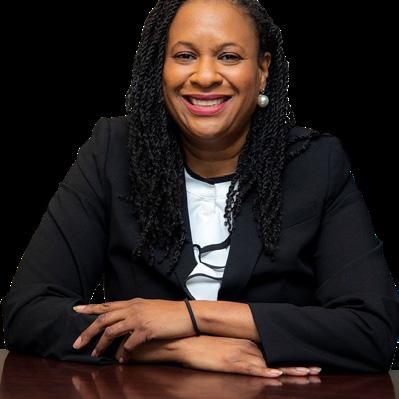
Welcome to the October 2023 issue of the Student Success Insider e-magazine! I am very excited to share with you some of the inspiring stories, recent projects, and commendable achievements from our campus over the last several months.
Marsha Lowery, Ed.D. Vice Chancellor for Student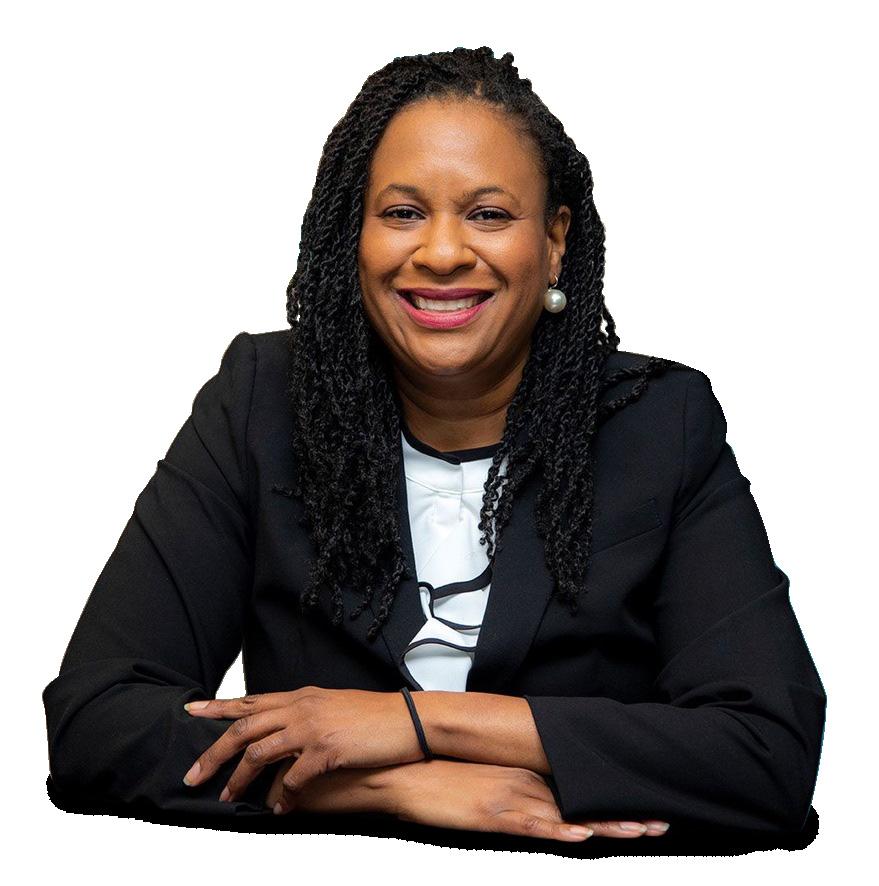
This magazine is your one-stop shop for all the latest news within the Division of Student Academic Success and is designed to keep you informed of the latest trends and developments in the world of student success in higher education.
As you know, student success is our one of our top priorities. We are committed to providing our students with the knowledge, skills, and resources they need to
succeed in their studies, graduate on time, and achieve their career goals. This magazine will highlight the many ways that staff and faculty across the college are contributing to student success. I encourage you to read this magazine and to share it with your colleagues. I also encourage you to submit articles and suggestions for future issues to success@camden.rutgers.edu.
HERE’S WHAT YOU CAN EXPECT IN EACH ISSUE:
We’ll keep you up to date on student success trends in higher education, events that promote student success on-campus, and highlight innovative practices curated by staff and faculty.
We will explore Rutgers-Camden student success data, the impact of our student success efforts, and share initiatives to improve academic outcomes.

We’ll offer practical recommendations for students, professors, and administrators to address challenges students may face and best practices to improve the student experience.
WE HOPE YOU ENJOY THE STUDENT SUCCESS INSIDER.
Academic Success
WE ARE COMMITTED TO PROVIDING OUR STUDENTS WITH THE KNOWLEDGE, SKILLS, AND RESOURCES THEY NEED TO SUCCEED.

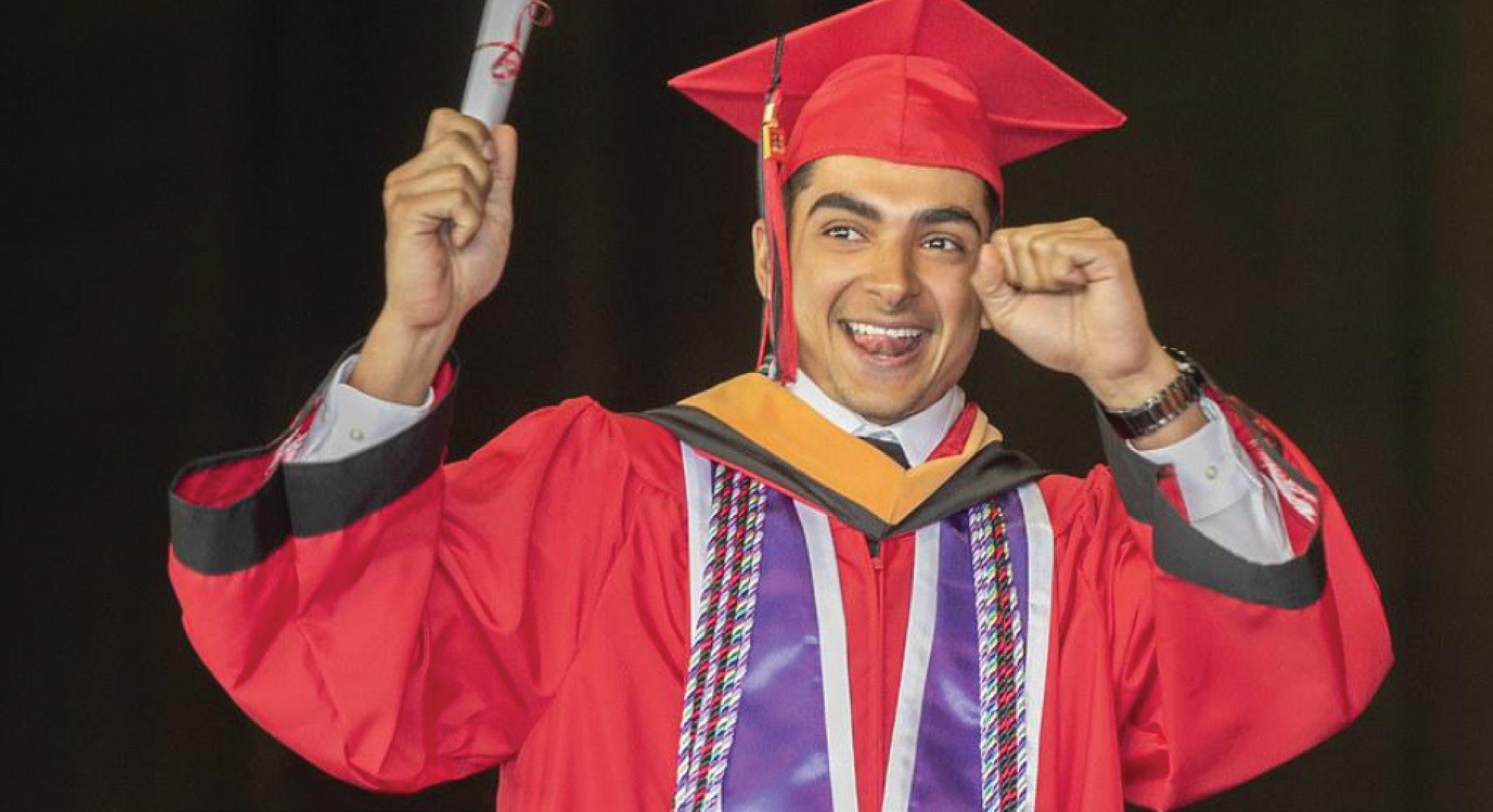
Students often come to college with big dreams, high hopes, and likely, a little bit of uncertainty. Looming questions like, “Who do I want to be?”, “Will I fit in?”, and “Do I have what it takes?” can all creep into their minds and cast doubts about their ability to excel in what lies ahead.
Helping our Scarlet Raptors find answers to these questions early on can be instrumental in influencing their perceptions about themselves, their engagement with the campus community, and ultimately their personal and academic success. Each student has their own unique view of what success means to them. Our job as a university is to ensure that they have the chance to achieve their goals by providing the right opportunities and proper support that allow them to thrive.
As a division, SAS has proposed how we can achieve this by promoting four key components of the student experience: Identity consciousness, sense of belonging, self-efficacy, and academic responsibility. Taken together, these components represent the core values the constitute the division’s newly proposed framework for student success. Moving forward, we hope to better educate the campus community about the specific ways in which we empower students to develop these values and become the best versions of themselves, both in and out of the classroom.
IDENTITY CONSCIOUSNESS refers to a student’s understanding of their values, goals, attitudes, and beliefs. This concept takes into account various social groups such as race, class, gender, and sexual orientation, and SAS aims to honor the multiple identities that our students bring to Rutgers-Camden. We contribute to students’ identity development by offering experiences that encourage them to build cultural capital, attain mastery of self, and grow their academic identity.
SENSE OF BELONGING is what students feel when the campus community has fostered a level of respect, value, acceptance, care, inclusion, and mattering. Belonging can be influenced by peer support networks, connections with faculty and staff, involvement on campus, and students’ participation in social change. SAS empowers our students to participate fully in their collegiate pursuits and we contribute to their sense of belonging by providing opportunities for them to develop meaningful relationships with the Rutgers-Camden community.
SELF-EFFICACY describes a person’s belief in their capacity to execute behaviors necessary to produce specific performance attainments. Through self-development, problem-solving, project-based learning, and experiential learning, students can begin to feel more capable and confident. SAS believes all students can fulfill their full potential and we contribute to their sense of self-efficacy by encouraging them to think critically, take risks, and advocate for themselves to build the required skills to positively contribute to their community.
ACADEMIC RESPONSIBILITY develops when students hold a sense of duty to their academic progress and become accountable for their own journeys. SAS welcomes students from a variety of academic backgrounds and knowledge levels. We contribute to students’ academic responsibility by helping them set and adjust goals, build positive habits, and participate in experiential learning.
We encourage you, our campus partners, to think about the ways in which your own work fits within this framework of student success. With a commitment to collaboration and student development, we can collectively discover ways to enhance student achievement through this lens.
SAS BELIEVES ALL STUDENTS
THAT OUR STUDENTS BRINGTO
RUTGERS-CAMDEN CAN FULFILL THEIR FULL POTENTIAL
“
” ”

As we all move forward with welcoming and engaging a new class of students to Rutgers-Camden, the Division of SAS is continuing its commitment to promote and facilitate their success by utilizing the College Student Inventory (CSI) for a second year. The CSI is a comprehensive and critical assessment tool that identifies highneed students based on various noncognitive indicators of college student success.
BY PERCENT OF STUDENTS REQUESTING ASSISTANCEGet help in selecting an academic program
Discuss the qualifications for careers
Discuss job market for college graduates
Get help in meeting new friends
Discuss advantages/disadvantages of careers
Get help in selecting a career
Get information about clubs and social organizations
Get help with study habits
Get help with exam skills
Get advice from an experienced student
Fall 2023 CSI results as of 9/21/23. Note: Priority scores are determined by a formula weighing a student’s need for a particular service with their expressed interest in that service. The percentage score is based on the number of students whose request for assistance on each item was 6 or higher (in a range of 1-10).
Upon completion, student support staff can retrieve detailed information about each student’s academic motivations, areas of risk, and receptivity to specific student services. All incoming first-year and transfer students were instructed to complete the assessment prior to the start of the fall term. Thus, the CSI has proven to be an incredibly useful tool by providing us with data early on so that we can make our student interventions more meaningful, relevant, and timely. Given that students are greatly influenced in the first 2 – 6 weeks on campus, proactive intervention that is informed by these results can significantly impact their intent and/or ability to remain at Rutgers-Camden.
By now, over 900 first-year and transfer students have completed the CSI, and the top 10 areas of need have been revealed. 61%-71% of students have indicated a request for assistance in selecting an academic program and discussing career-related topics. With this in mind, both faculty and staff might consider their role in helping students to become more informed in these areas. Examples could include hosting information and exploratory sessions for undecided students, offering career assessments like the SIGI 3 or Strong Interest Inventory, encouraging students to conduct informational interviews with faculty in various fields, and guiding students toward research or internship opportunities. For more information about the CSI, student results, or potential interventions, please contact Dr. Kendall Barton
During the spring 2023 semester, the Center for Learning and Student Success launched the Hands-on Academic Recovery Program for Probation Students and Health and Academic Recovery Program for Continued Probation Students (HARP).
As part of this opt-in support service for students on probation, continued probation, and deferred dismissal, students are assigned to a Learning Specialist, Senior Program Coordinator, or Student Success Advocate who guides them through a self-reflection survey and an Individual Student Success Plan (ISSP). Participants meet with an assigned mentor several times throughout the semester and based on their individual needs, receive academic resources, encouragement, and support to overcome challenges.
Students who participated in HARP last spring demonstrated noticeable academic gains when compared against their non-participating peers, including term GPAs that were nearly 0.5 points higher at the end of the semester.
Non-Participants
Moving forward, the program will intensify its focus on our male-identified students, by instituting a mentoring program that emphasizes personal motivation and will. For more information about HARP, please contact Learning Specialist, Jonice Arthur.
Providing feedback early and often about a student’s progress not only allows students to monitor and take charge of their success in class, but it also allows faculty and staff to intervene with supplemental support before more serious consequences occur, such as course failure or withdrawal from the institution. An assessment of NAVIGATE data from 2022-2023 revealed 83% of progress reports for our undergraduates were positive or neutral. But what about those marked “at-risk”? More importantly, what about those who were at-risk but weren’t formally made aware?
Last year, 22% of all ‘D’ and ‘F’ final grades had no progress report associated with them. While it’s likely obvious to most students when they aren’t doing well in a course, we may be doing our students a disservice by not formally documenting and notifying them.

Of the students who received an “In Danger of Failing” report, almost HALF were able to improve their grade to a ‘C’ or higher! This suggests that when students are notified of their standing in a course, they are motivated to eek support via faculty and academic services.
Faculty members can easily contribute to the success of our students by submitting progress reports on-time for each of their courses. The reporting period for the Fall ‘23 semester runs from October 16 – November 5. Questions about the process can be directed to Lindsay Peck.


As many of you are already aware, early alert or “early warning” systems in higher education are used to identify high-need students, provide timely support, and ultimately promote student retention and graduation.

Between July 10 and August 10th, 97 recent high school graduates participated in one of two immersive preparatory programs designed to help them get a head start on acclimating to college life and completing course requirements. Students earned up to 4 credits and received supplemental course instruction, tutoring, weekly workshops, and personal coaching. Students had the option to live on campus or commute, and had the opportunity to work with peer residential coaches who helped build a sense of community amongst the cohorts. By the end of the summer, 54% of EOF students earned a 4.0 GPA and 75% of students overall entered the fall term with at least a 3.0.
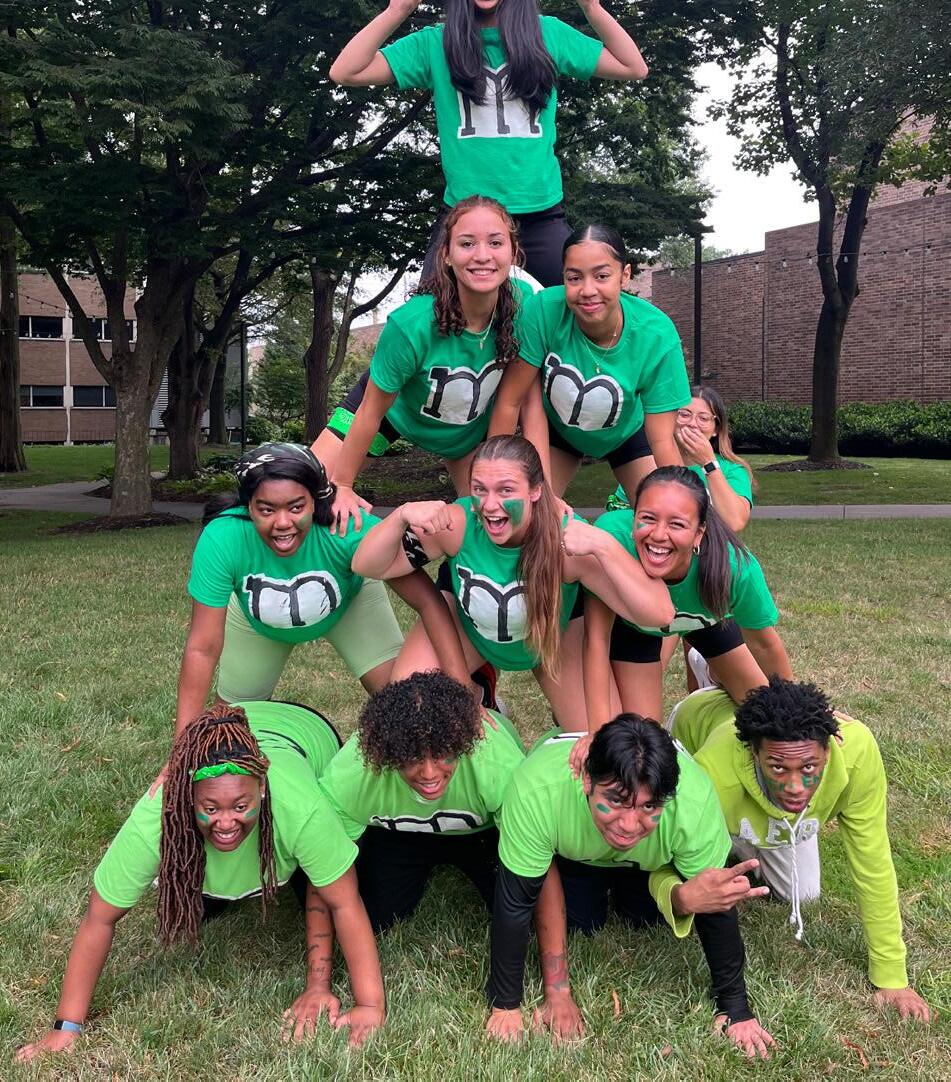
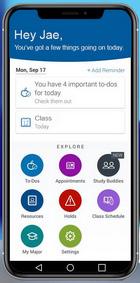
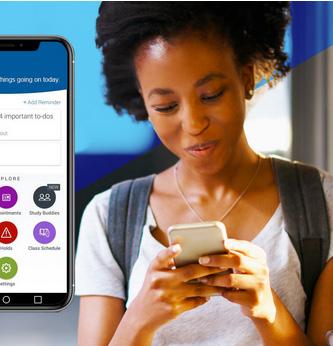
We are excited to announce the launch of the new NAVIGATE (previously Raptor Connect) Student app, available for students to download on their phones and tablets or to view online! As an extension of the online platform that we all know and love, the NAVIGATE app enhances the student experience by making key features available at their fingertips: appointment scheduling, to-do lists & reminders, campus surveys, and a “hand-raise” feature that submits an alert to school staff when support is needed. Leveraging mobile technology enhances our ability to reach more students, faster, and increases our capacity to guide them through pivotal moments throughout their college journey.
NAVIGATE Student compliments our commitment to providing resources and services that help build a foundation for student success.
How SAS is doing its part to support our students
The Division of SAS is continuing with our tradition of acknowledging our returning students’ success in a special way. The second annual Raptor Rising Star Awards were hosted last month, in an effort to encourage persistence among students who may not typically be recognized for their achievements.
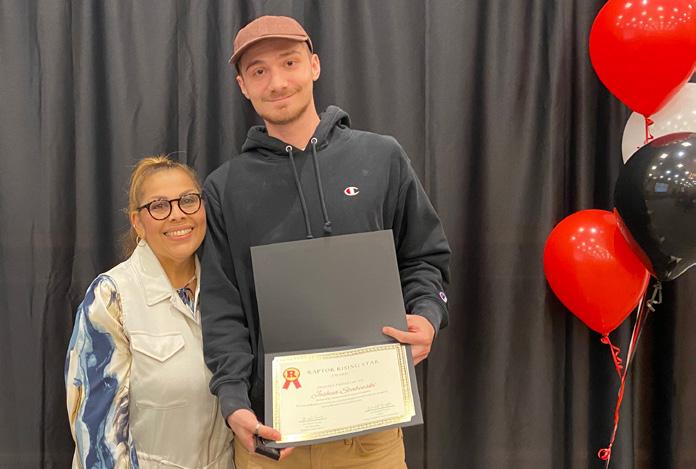
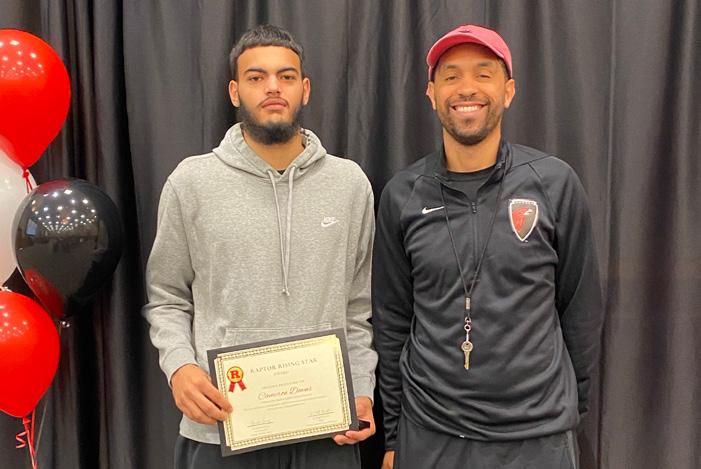
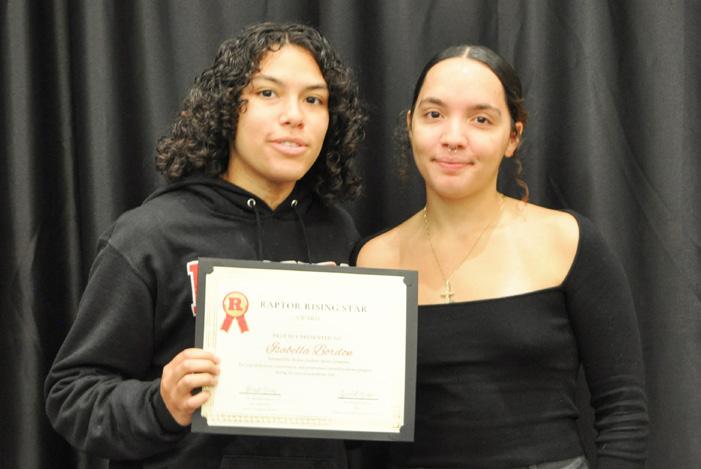
With several nominations received from staff across campus, we honored and celebrated over 60 students who have demonstrated great determination, perseverance, and resilience thus far. These may not be students who fit the traditional description of “academic excellence”, but they have nonetheless made significant strides and shown some form of academic improvement within the last year by improving their GPA, completing a SAP plan, or removing themselves from academic probation. The reception afterward was a great opportunity for students to mingle and converse with their peers, professors, and staff members who they identified as being instrumental in their success. Thank you to everyone who contributed to making this a special moment for so many!
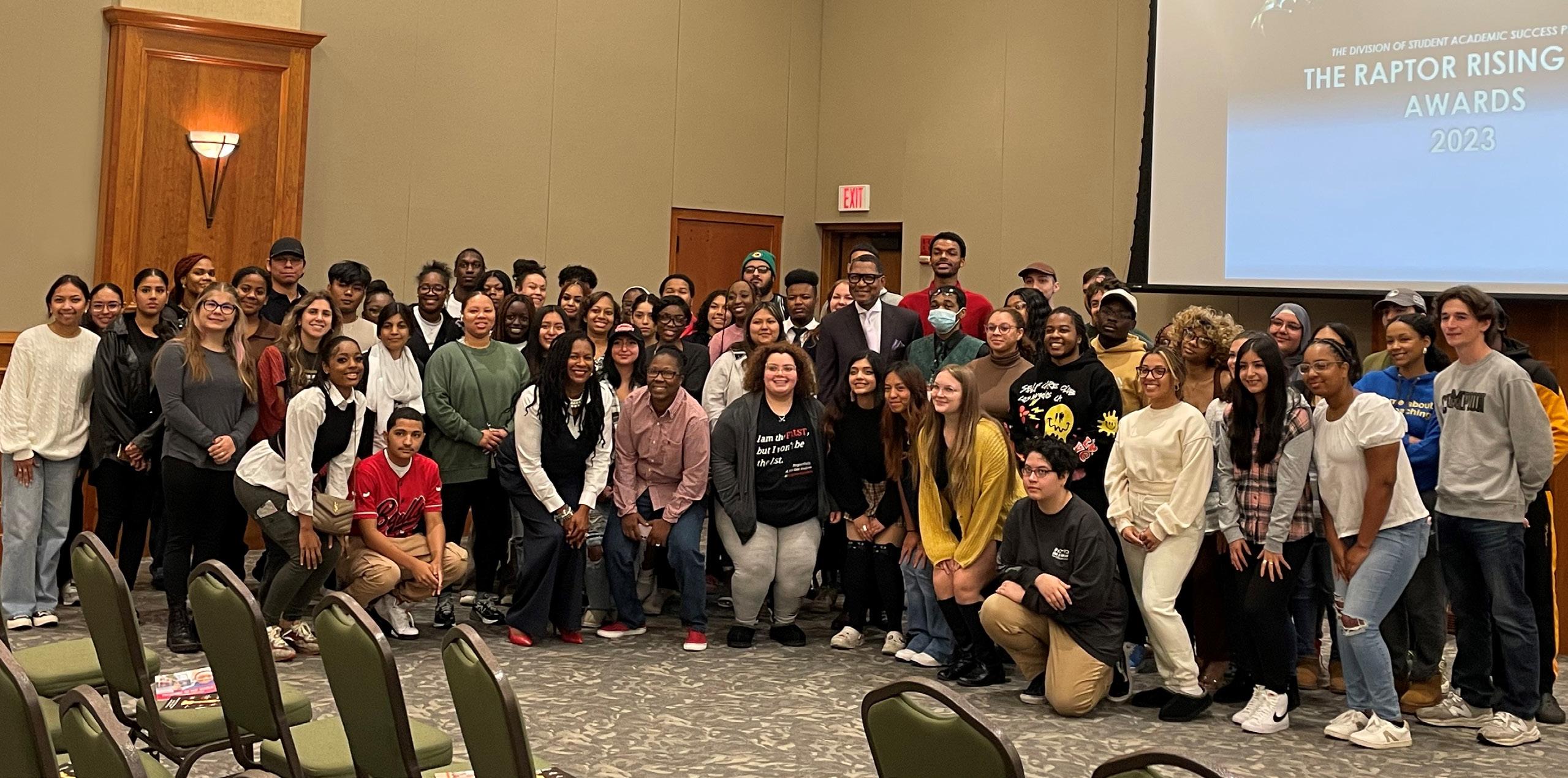
The Division of Student Academic Success has been gathering information concerning student success initiatives that are developing across campus so that we can gain a deeper understanding of the work that’s occurring and to identify ways to best support such efforts. These projects and programs focus specifically on enhancing student academic success, improving retention, encouraging persistence, and/or raising graduation rates. Take a look at what our colleagues have been up to and what they hope to achieve with our Scarlet Raptors. If you are working on an initiative that promotes any of these topic areas, please let us know here.
In a collaborative effort between Enrollment Management and Student Affairs, SAS helped to host parent and family sessions during new student orientation this summer. Sessions reviewed college student expectations, communication do’s and don’ts, and the behaviors that lead to student success. Families also learned that college success is not only defined by academic performance alone but also includes personal development and experiences. SAS is hopeful that we can continue to work with our campus partners to further engage families throughout the year to help facilitate their students’ success.
Many of us are familiar with the Raptor Pantry that was established within the Wellness Center years ago to address the food insecurity needs of our students. Since its inception, over 72,000 pounds of food and 60,000 individual meals have been distributed. The pantry, now re-branded as The Raptor’s Nest, has moved to a newly renovated space in the offices at 215 N. Third Street (room 119). The pantry will be open Tuesdays and Thursdays from 1-3:45pm and offer various essentials such as fresh produce, milk, eggs, bread, meats, personal care items, laundry detergent and more. Online ordering options will also be offered on Wednesdays, beginning later in the semester. Stay up to date on all the Raptor’s Nest details here
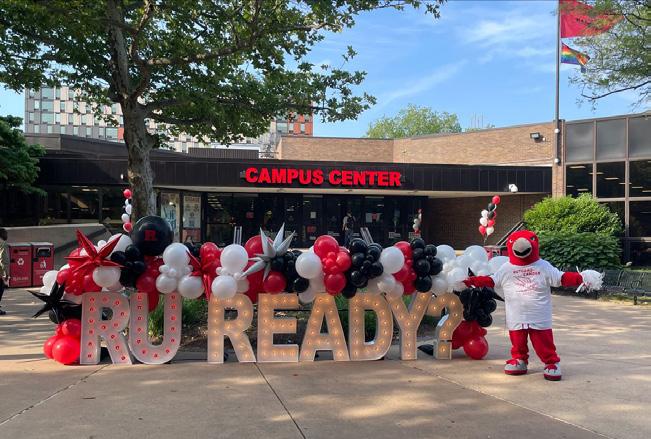
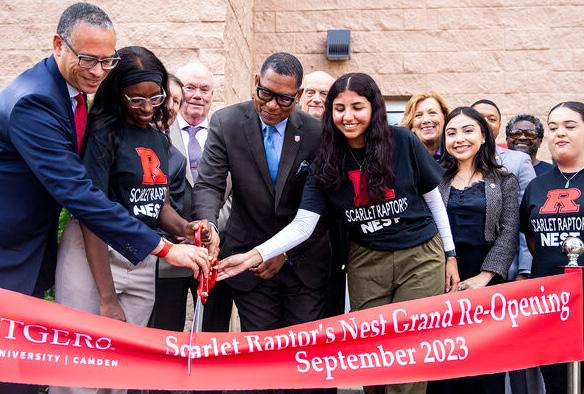
In partnership with Rutgers Global, SAS and the Office of International Students & Global Programs is working to expand the opportunities for our students to travel abroad. The Passport to the World initiative will cover the costs of applying for a first-time U.S. passport for any matriculating RU-C student who qualifies. While there is no obligation to complete a learning or study abroad program, we hope that this will reduce the barriers that students face when considering the feasibility of these opportunities. The application and additional details can be found here

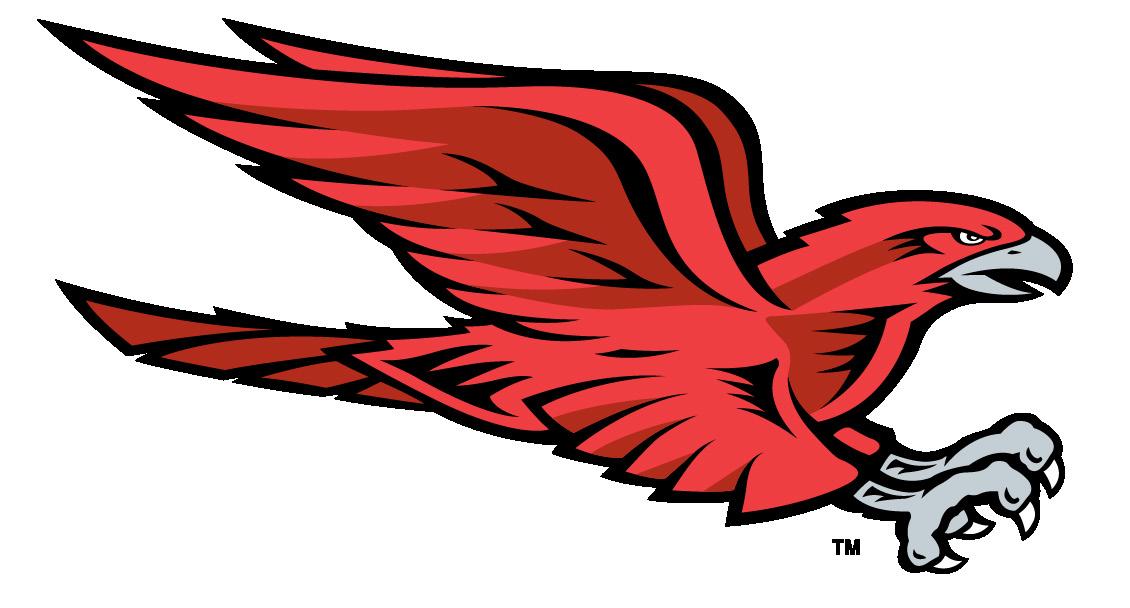
In each issue of the Student Success Insider, we will highlight members of the campus community whose efforts reflect the Division’s mission to promote student excellence and persistence. If you wish to submit a nomination for someone or alert us of your own work, please fill out our nomination form.

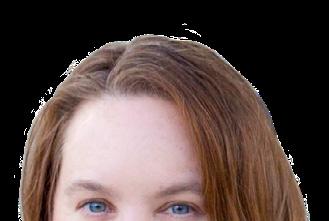
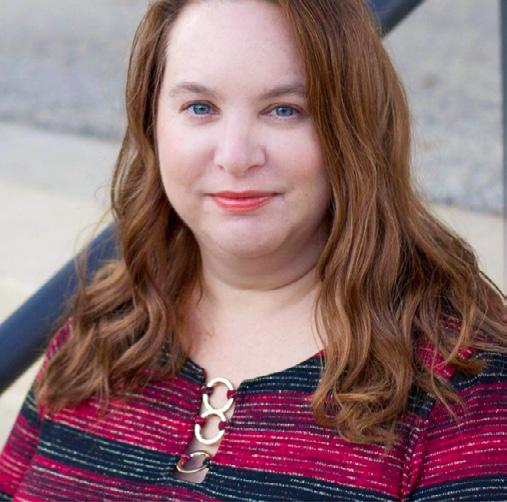 Program Director, Pre-Licensure Programs and Clinical Assistant Professor
Program Director, Pre-Licensure Programs and Clinical Assistant Professor
Dr. Derr is the Director of Prelicensure Programs and a Clinical Assistant Professor who teaches Foundations of Nursing Theory, Nursing Care of Children and Adolescents Theory, Research and Evidence-Based Practice, and Seminar in Professional Nursing. She is a Certified Nurse Educator and additionally certified in Low–risk Neonatal Intensive Care Nursing, Online Teaching, Lifelong Learning in Inclusive and Equitable Teaching, and Implementation of Inclusive and Equitable Teaching. Dr. Derr facilitated the Association of College and University Educators (ACUE) Effective Teaching Practices course and earned the Advanced Credential in Effective College Instruction. She is also the author of the Blog Changing Course: Innovative Ideas for Nurse Educators. We talked with Dr. Derr about her experience facilitating the ACUE curriculum for her colleagues, best practices for course instruction, and her personal views on student success.
How do you personally define student success within the scope of your work?
I define student success as providing an environment that will help students to achieve their goals. Success is defined differently for each student. For example, the student with a B-average may have a goal of an ‘A’, or someone with a D-average may have a goal of passing the course. Another student may want to balance family, work, and school. Helping a student achieve success is multifaceted and not only includes teaching and assessment, but also includes meeting students where they are by providing person-centered guidance and connection to supports.
What key principles contribute to the foundation of effective teaching practices, and how can faculty infuse them into their daily work with students?

Key principles include strategies like planning each class, embracing diversity, ensuring equitable and inclusive access to learning, using evidencebased practices, encouraging student motivation and reflection, and providing feedback. Continuous pedagogical and curriculum improvements such as using peer and student feedback to improve your teaching, establishing learnercentered outcomes, and developing equitable grading practices are also important.
My recommendations for faculty seeking to infuse these key principles into their daily work include starting small, seeking out development opportunities (like ACUE), being open-minded, sharing successes, and not fearing failure.
What kind of insight did you gain from your colleagues about their teaching practices, successes, and challenges upon engaging with them throughout the Effective Teaching Practices course?
In my role, l acted as a guide to support course takers as they learned about, implemented, and reflected on their teaching strategies. My favorite part was learning and growing as an educator from the course-takers and recognizing that we are all on this journey together. We all want the best for our students and for each other!
How do you specifically plan to incorporate best practices into your classroom this semester to enhance student engagement and achievement? This semester, I am working on aligning learning experiences, assignments, and assessments to student learning outcomes, and I am trying out a new
active learning strategy that can be used in both the classroom, laboratory, and clinical settings to help students apply what they are learning. Students are noticing the changes I am making. Just this summer in my SIRS report, a student commented “I will forever be grateful for her [Rachel Derr’s] gifts of wisdom, her ability to understand that we all learn differently and that sometimes you need a little mental health break during a 4-hour lecture to regain composure.” I am happy and humbled to know that I am making a difference.
I am also starting a new initiative called Teaching Circles for faculty newer to the School of Nursing. The purpose is to build collegiality and focus on strategies that promote student engagement and success. It is my hope that our teaching circle will prove to be a safe place for learning, exploration, change, and accomplishment. The goal will be for us to formally get together once a month, while informally connecting in-between meetings to exchange ideas and provide support to each other. If it works out well, the hope is to expand the teaching circles idea to more faculty in the School of Nursing.
“Success is defined differently for each student.”
Dr. Tomé is the Engaged Civic Learning Program Coordinator in the Office of Civic Engagement in the Division of Diversity, Inclusion and Community Engagement. In his role, he works closely with faculty through the Faculty Fellow program to adapt a critical servicelearning pedagogy into their syllabi, support the Engaged Civic Learning courses and work closely with students & community partners to find resources to work on civic engagement projects throughout the city of Camden.
As a first-generation college student and Rutgers New Brunswick-alum, Dr. Tomé was a proud participant in the Upward Bound and EOF programs. His work history includes engagement in community servicelearning programs, gender/sexuality programs, and diversity and leadership development. He earned his Doctorate in Education at Stockton University, with a dissertation focused on support systems for first-generation students who utilize the Federal Work-Study program. We took some time to discuss the important role that he plays on the Rutgers-Camden campus and the influence of his work on student success.
How do you personally define student success within the scope of your work? Student success is understanding how to navigate the systems in higher education and create support systems for a holistic approach to their pathway for their own personal and professional development as an engaged citizen. I’m a true believer in the liberal arts education model, that students can only be successful after they have learned and reflected on how to be a
person in all aspects of their whole self. Self-awareness, empathy, and humility are just a few characteristics that students can learn from literature, art, history, and science. If students are given the space to be successful, they can achieve so much in a supportive environment that allows them to fail and learn – to prepare them not just for their first job out of college but their 10th job throughout the longevity of their personal lives and careers.
What is civic learning and why is it important for our students?

Civic learning is the bedrock of being an engaged citizen for themselves and their communities. Rutgers University is one of many land-grant institutions throughout the country that are built on the principles of the 1863 Morrill Act – this established the importance of preparing farmers and working people to gain an education to support society. No matter what a student comes to Rutgers-Camden to major in – they will leave with the toolkit to ensure that they will be productive citizens in their community, in their professions, and in their own-self. The crux of the pedagogy that is civic learning is focused on service that leads to social change. This can only happen with a deep understanding of oneself through a great amount of identity development, self-awareness and reflection. The key to engaged civic learning is that a student understands their own perspective of how we engage others who may be different than us and how building reciprocal relationships can benefit bridging the gaps we have in our society.
In what ways does your work speak to the values that comprise the SAS Framework for Student Success?
Engaged civic learning as a highimpact practice can not be fully adapted without the space to allow a student to best understand how they belong here on campus, in the classroom, and in the community. The character & identity development that a student focuses on throughout their college experience is key to their own success – ECL courses provide the skills, knowledge, and experience to develop these values as well as reinforce through the act of reflection. It’s important to allow students to best understand that their development in and out of the classroom can achieve these values at Rutgers-Camden.
What areas of your work do you take the most pride in, and why?
I take pride in building relationships with our students, faculty, and community partners. I strive for folks to see the potential I see when I make an introduction in person or via a planning meeting. I think of my work at times as an IRL Tinder app – asking folks to swipe left or right to make the best relationship possible for their own personal or professional growth; For the opportunities that can come from the resources we have here at RutgersCamden; For faculty scholarship and research to expand resources; and solving wicked problems and concerns in our communities. I strive to make sure that students, faculty, and community partners know that we can make real, honest change when we communicate with one another and dive deeper! Even when relationships don’t work out, it’s an opportunity for growth, reflection, and humility –values that I believe in very strongly and do my best to “practice what I preach”.
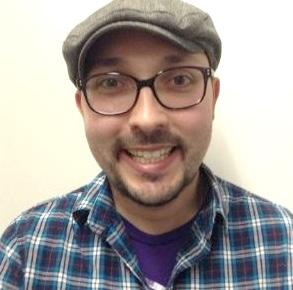

Tamika is a current senior in the School of Business, majoring in Business Administration, and is a recipient of the Raptor Rising Star Award. She is also a published author, having written two books about her experiences with love, relationships, faith, and abuse.
Tamika is no stranger to adversity, and she represents just one of the many strong-willed and resilient students on our campus who are determined to earn their Rutgers degree and achieve their dreams. We sat down with Tamika to learn more about the challenges, successes, and motivating factors that have played a role in her college journey.
What does success mean to you?
I’m going to be the first person in my family to graduate. So, for me, it’s overcoming that milestone and finding balance. I’m a single mother of two and I also work full-time. So, success is about balancing my time and realizing that I’m achieving this [degree] not only for myself, but to provide a better future for my children.
What has been the greatest challenge you’ve faced during your educational career?
I’m a survivor of domestic violence. So, I was going through that and a divorce as well—trying to get back on my feet and discover who I was. My greatest challenge was that I felt like I wasn’t going to be anything other than a victim. So, when I began to realize that I wanted to be something else — that I was worth something else — that’s what became one of my greatest motivators. But that was the
biggest challenge that I was going through—trying to figure out who I was as an individual. I started taking “me” time. Even if it was just sitting in the car for 15 minutes or sitting at the beach and thinking about what I wanted for myself. I used to look in the mirror and say, ”what can I do for myself today, instead of for somebody else?” God and my church also played a major role.
What is your greatest motivation for getting your degree at RutgersCamden?

I just want to be somebody. I want to make an impact on somebody’s life and let them know that just because you have challenges in your life, it doesn’t stop there. You can do whatever you put your mind to.
She has been the greatest supporter of all time. I wish I would’ve met her a year ago because I would’ve been so much better off! She’s been there every step of the way. She’s allowed me to talk things through and make short and long-term goals for myself. That’s something that I’ve never really done before — creating a vision and asking myself where I want to be three months from now or a year from now. That was big for me.
What is your proudest accomplishment as a Rutgers-Camden student?
Getting the Raptor Rising Star award. I had to read the invitation again to make sure they had the right person. Being nominated for that is something huge for me. It just made my day. And also the fact that I’m actually completing something — after the winter session, I will officially have a bachelors degree and that’s a big deal for me!
In what ways have you felt most supported by the campus community to achieve your goals? Who on campus has been your greatest influence? When I realized that I was actually in a domestic situation, I talked to a therapist on campus. She helped me realize that I was being treated in a way that I didn’t have to put up with. And then I met Jonice Arthur.
“I’m achieving this [degree] not only for myself , but to provide a better future for my children.”
Senior, Business Administration Major
The Office of Disability Services is building a new testing center in the Paul Robeson Library. Students with approved testing accommodations can begin utilizing the space later this month.
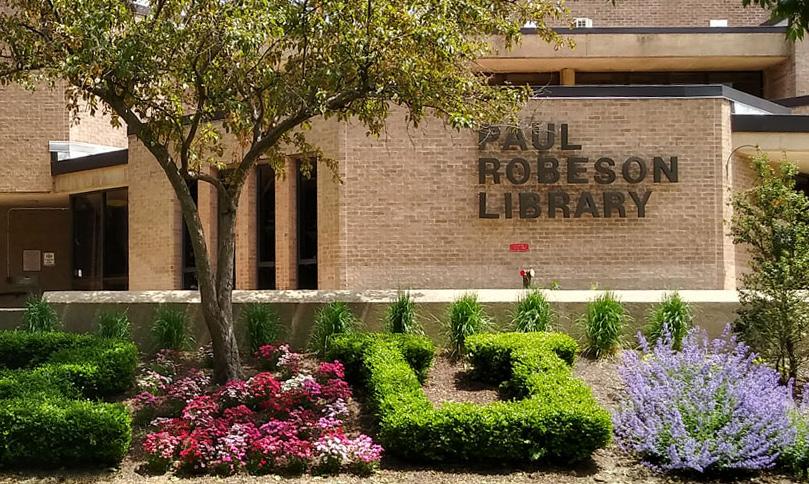
We are excited to announce that SAS will be represented in four different presentations at the Rutgers Summit on Student Success, hosted by the Educational Equity and Excellence Collaborative (E3C) in New Brunswick. The conference focuses on supporting first-generation college students, students who are members of historically underrepresented groups, and students from economically less advantaged communities. Educators, researchers, practitioners, and advocates will come together to share innovative ideas and best practices for empowering and learning from these extraordinary students. SAS sessions include:
• Avoiding the Assumption: Moving Towards Data Utilization to Understand the First-Generation Student Experience on Campus (Dr. Randi Mayers)
Calling all first-gen students, faculty, staff, and alumni! Help us kick off first-gen week with a reception meant to recognize your achievements and build community.
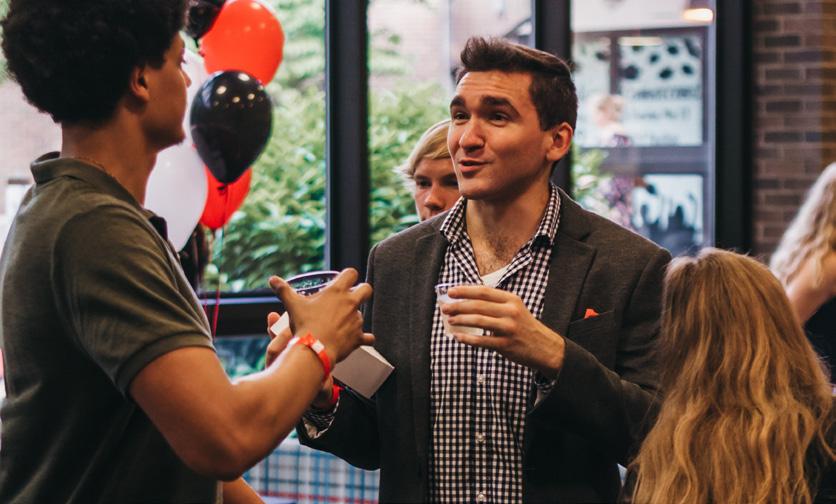
Registration required. Please contact Matthew West
• Coaching for Success: Best Practices for holistically supporting students from enrollment to graduation and beyond (Dr. Kendall Barton)
• Be Well: Cultivating an academic identity for minoritized maleidentifying students (Craig Roscoe)
• Partnering with Professors to Improve Student Academic Success (Angela DeRocini)
